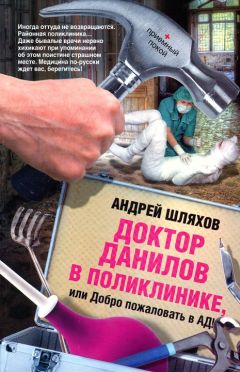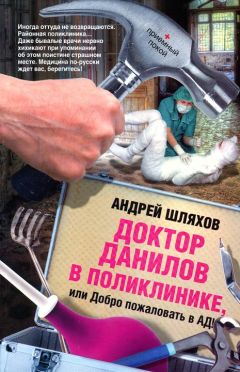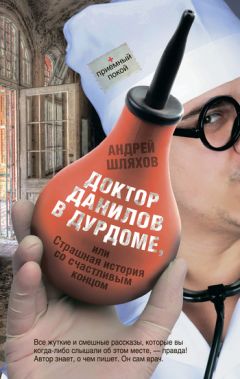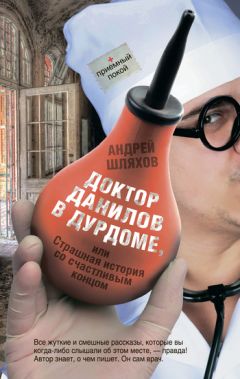Anthony Powell - At Lady Mollys
It was quite a good test, and I came out of it with flying colours; that is to say, without any immediate desire to buy an air ticket to Rome.
‘You did know my sister, Jean, didn’t you?’ he said. “I mean I haven’t been telling you a long story about someone you’ve never met?’
‘Of course I knew her. And your other sister, too. I met her ages ago.’
‘Baby Wentworth is a cousin of mine,’ said Mrs. Haycock, suddenly breaking off an argument with Hopkins regarding the private life of the barman at the Carlton Hotel at Cannes. ‘What a pretty girl she is. When my father died, he hadn’t managed to produce a son, so Baby’s father succeeded. Her brother, Jack Vowchurch, is rather hell, I believe. I’ve never met him. They were quite distant cousins, and we never saw anything of them. Then one day at Andbes someone pointed out Baby to me. Didn’t Sir Magnus Donners have rather a fancy for her? She was with him then.’
‘Wasn’t your father the chap who rode his horse upstairs after dinner?’ asked Jeavons, wholly unexpectedly.
‘Yes, of course he was,’ said Mrs. Haycock. ‘His favourite hunter. That was before I was born. I think he was supposed to be celebrating something. “Peace with Honour”, would it have been? That kind of thing. I believe that was the story. We had a hunting-box at Melton Mowbray that season. They had to demolish the side wall of the house to retrieve the animal. It cost the hell of a lot of money, I know.’
Once again, when she spoke of her father, I was reminded of Mrs. Conyers, even though the phraseology of the narrative was so different from any her sister would have employed.
‘And then there was some other story,’ insisted Jeavons. ‘Setting fire to a fellow’s newspaper in a train. Something like that.’
This interest in Lord Vowchurch on the part of Jeavons I found astonishing.
‘There are absolutely hundreds, darling,’ said Mrs. Haycock. ‘Do you know about when he squirted mauve ink over an archbishop at a wedding?’
‘I met such a sweet archbishop at the Theatrical Garden Party last year,’ said Pilgrim. ‘Perhaps he wasn’t an archbishop, but just a bishop. He wore a hat just like one of Heather’s.’
‘I might get a clerical hat,’ said Hopkins. ‘That’s not a bad idea. There is a place off Oxford Street where they sell black boaters. I’ve always wanted one.’
I asked if she had been seeing much of Norah Tolland and Eleanor Walpole-Wilson.
‘Oh, those two girls,’ she said. ‘I thought I’d met you before somewhere. No, I haven’t been seeing them. I found out Eleanor had said a very unkind thing about me. I thought she was a friend, but I see I made a mistake.’
‘Look here,’ said Jeavons, who had cast off inertia and was now in his most lively mood. ‘Do you remember how that song used to go:
“He ran a pin
In Gwendolyn,
In Lower Grosvenor Place …”
I can’t remember the exact words.’
By this time I was becoming tired of Umfraville’s night club. Like Widmerpool, I wished to go home. Jeavons’s companionship demanded an almost infinite capacity for adaptation to changed moods and circumstances. In many ways sympathetic, he lacked any of that familiar pattern of behaviour to be found, say, in Quiggin, so that in the last resort his company was exhausting rather than stimulating. Umfraville went off to attend to the club’s administration. Discussion began once mere as to whether the party should move elsewhere.
‘I’ll tell you what,’ said Mrs. Haycock. ‘If you all want to go to the Slip-in, why not leave me here with Ted. He and I will talk about old times for a bit. Then he can see me home.’
That was agreed. There was still a lot of talk. I left before the final plan was put into execution. Out in the passage, Umfraville was instructing the villainous, blue-nosed custodian as to who could, and who could not, wisely be admitted to the club.
‘Not going?’ he said. ‘It’s early yet.’
‘I’ve got to get up early tomorrow and write filmscripts.’
‘Good God,’ he said. ‘But, look here, just before you go, what’s happened to Mildred Haycock these days? I hadn’t seen her in an age. She seems to be holding up pretty well. I know Peter Templer, but who was the other chap who left the party early on?’
‘He is called Widmerpool. She is engaged to him.’
‘Is she, indeed? What does he do?’
‘A bill-broker.’
Umfraville nodded his head sagely.
‘Come again,’ he said. ‘Now that you know the way.’
I passed through empty streets, thinking that I, too, should be married soon, a change that presented itself in terms of action rather than reflection, the mood in which even the most prudent often marry: a crisis of delight and anxiety, excitement and oppression.
5
A BACKGROUND of other events largely obscured the steps leading up to my engagement to Isobel Tolland. Of this crisis in my life, I remember chiefly a sense of tremendous inevitability, a feeling that fate was settling its own problems, and too much reflection would be out of place. Marriage, as I have said, is a form of action, of violence almost: an assertion of the will. Its orbit is not to be charted with precision, if misrepresentation and contrivance are to be avoided. Its facts can perhaps only be known by implication. It is a state from which all objectivity has been removed. I shall say something, however, of the incident which at this juncture chiefly distracted attention from my own affairs.
Although that evening when we had dined at Thrubworth had been by no means the sole occasion when Quiggin had announced that he wanted to ‘see China and judge for himself’, no one among his acquaintances supposed him at all likely to set sail at once for the Far East. The words were generally — and, as it turned out, correctly — assumed to be in the main rhetorical: merely buttressing opinions already propagated by him about the ominous situation in Asia. There was, for example, the matter of fare. High as his reputation stood as a critic, it was doubtful whether any publisher would be prepared to advance enough on a projected travel book, with a political bias, to transport Quiggin so far; while Erridge, sympathetic to the wish, had at the same time shown no impulse to foot the bill. Doubts had been maliciously expressed by Mark Members, just returned from his lecture tour in America, as to whether, when it came to the point, Quiggin would be impatient to enter an area in which the Japanese Army was at that time engaged in active operations. Members may have been unjust. He was certainly applying to Quiggin the heartless criticism of an old friend. All the same, I should have been surprised to hear that Quiggin had set out upon that journey.
On the other hand, when Erridge for the same reason — to see for himself’—turned out to be on his way to China, there was less to wonder at. Erridge had already shown himself prepared to undergo uncomfortable forms of travel; he was undoubtedly in a restless state of mind; he was interested in the political implications of the situation: finally, he could afford to buy a ticket. The enterprise might be the result of Quiggin’s advocacy, or his own gnawing sense of moral obligation. The motive was almost immaterial. There was another far more absorbing aspect of his departure when it came about. He did not go alone. He took Mona with him.
Naturally this affair was discussed at great length at houses such as the Jeavonses’, where no details were available, beyond the fact that Erridge and Mona were together on a P. & O. liner bound for the East; while Quiggin had been left in England. Their precise destination was unknown. The immediate Tolland family were, naturally, in a ferment of interest. Even so, the story made on the whole less stir than might be thought; for Erridge had by then so firmly established a reputation for eccentricity that those who knew him personally were prepared for anything. Since he inhabited no particular social milieu, his doings affected few individuals directly. Such persons were chiefly a small group of hangers-on, like Quiggin or Howard Craggs, the Left Wing publisher, and the members of some of Erridge’s committees. For the rest of the world, those to whom his name alone was familiar, his behaviour as usual took on the unsubstantial shape of a minor paragraph in the newspaper, momentarily catching the attention, without at the same time giving a conviction of its subject’s existence in ‘real life’. Uncle Giles, with his very different circumstances, was in much the same case, in that no one knew, or, for that matter, greatly cared what he would do next, provided he made no disastrous marriage and kept out of prison. In Erridge’s position, the question of marriage now loomed steeply for his relations, a matter of keen speculation, particularly since this was the first occasion when he was known to have been closely associated with any woman.
All this had considerable bearing on my own life at the time, because my engagement was made public in the same week that the Erridge-Mona story broke, and was naturally overshadowed — especially upon my first meeting with Katherine, Lady Warminster — by this far more striking family convulsion. Some people considered Mona’s abandonment of Quiggin less remarkable than the fact that she should have stayed with him for several years. Others took the opportunity to recall that, after crossing the Rubicon of leaving Templer, further changes of partner were inevitable. That was all very well, but I had to admit to myself that, when I had seen them together at Thrubworth, I had never guessed they were about to run away together. Erridge had shown no sign whatever of having any so desperate a plan in view, while Mona’s interest in him had appeared to be no more than the natural product of her own boredom at the cottage. Possibly at that time neither had contemplated any such development. All at once the urgency of action had swept irresistibly down upon them: a sudden movement that altered the value of every piece on the board. This would deal a serious blow to Quiggin. Even if he had never gone through the ceremony of marriage with Mona (which now seemed probable), his close relations with Erridge would scarcely survive such conduct; or would, at best, take some little time to repair on Erridge’s return from China.
This escapade of Erridge’s — at present it was spoken of merely as an escapade, because any question of marriage must in the first instance depend upon whether or not Mona was already Quiggin’s wife — very considerably magnetised the atmosphere when for the first time I came to see his stepmother. No one yet knew how much Lady Warminster, on the whole alarmingly well informed on all topics connected with her relations, had up to that time been able to discover about Erridge and Mona. She was suspected, as usual, of possessing more information than she was prepared to admit. Like a foreign statesman, who, during important international negotiations, insists upon the medium of an interpreter in spite of his own familiarity with the language in which discussion is being conducted, she preferred every approach to be devious, and translated into her own idiom.
Although, by then, I had often visited the house in Hyde Park Gardens, she and I had not met on those earlier occasions, chiefly because Lady Warminster’s health kept her for weeks at a time confined to her room. Views differed as to the extent to which hypochondria governed her life, some alleging that no one enjoyed better health, others taking her side in insisting that, delicate since childhood, she bore her ailments courageously. Smaller, older, quieter in manner and more handsome than Molly Jeavons, she was also much more awe-inspiring. Something of the witch haunted her delicate, aquiline features and transparent ivory skin: a calm, autumnal beauty that did not at all mask the amused, malicious, almost insane light that glinted all the time in her infinitely pale blue eyes. When young, she must have been very good looking indeed.
Unlike her sister, who was entirely detached from intellectual interests of any sort, Lady Warminster lived largely in a world of the imagination. Her house, a complete contrast to the Jeavonses’, reflected the more ordered side of her nature, surprising by the conventionality of its taste and air of stylised repose; at least until the rooms given over to her stepchildren were reached. These quiet, rich, rather too heavy decorations and furniture were deceptive. Little about the house could be thought quiet, or conventional, when closely examined. Perhaps, after all, when closely examined, no sort of individual life can truly be so labelled. However, against this formal background, when her health allowed, Lady Warminster wrote her books, historical studies of the dominating women of the past: Catherine the Great: Christina of Sweden: Sarah, Duchess of Marlborough: volumes rarely mentioned in the press, though usually kindly treated by such critics as noticed them, on account of their engaging impetuosity of style and complete lack of pretension to any serious scholarship.
This literary preoccupation with feminine authority had come to Katherine Warminster, so it appeared, only after her second widowhood. Like her sister, Molly, she had no child by either husband, the first of whom had been one of those ‘well-born’ City men for whom Peter Templer used to express such aversion. He had been a fairly successful stockbroker, fond of hunting and shooting, a man, so far as could be judged, with no salient characteristic. His wife had spent most of her days with friends who belonged to a world quite other than his own; latterly submitting to him in their marriage only to the extent of living in the country, where she was bored to death. She can have seen little more of Lord Warminster, when married to him, much of whose time was spent abroad unaccompanied by his wife, fishing in Iceland or pig-sticking in Bengal. This status of having twice married, without, so it might seem, great attachment to either husband, perhaps gave Lady Warminster the mysterious, witch-like quality she dispensed so pervasively about her.
The second marriage was said — quite unexpectedly — to have improved, on the whole, Erridge’s relations with his father, with whom, without any open quarrel, he had never been on good terms. Lord Warminster had accepted his son’s idiosyncrasies stoically, together with anything else of which he disapproved in his children, attributing everything to their mother’s Alford blood. The rest of the Tolland brothers and sisters had lived — Norah was an exception — amicably with their stepmother: the younger ones entirely brought up by her. Lady Warminster, eccentric herself, showed a decent respect for eccentricity. She had no wish to interfere with other people, her stepchildren or anyone else, provided her own convenience was not threatened, so that the Tollands were left largely to their own devices. Life at Hyde Park Gardens might be ruthless, but it was played out on a reasonably practical basis, in which every man was for himself and no quarter was given; while at the same time a curtain of relatively good humour was usually allowed to cloak an inexorable recognition of life’s inevitable severities.
I was fortunate enough already to have established myself to some small extent in Lady Warminster’s good graces by a book written a year or two before which she happened to have enjoyed, so that my own reception might have been a worse one. Even so, with a person of her sort that was not a matter upon which to presume. For a time we discussed affairs personal to Isobel and myself, and then, as soon as these could be politely, and quite kindly, dismissed, Lady Warminster gave a smile that showed plainly we should turn to more intriguing topics.




